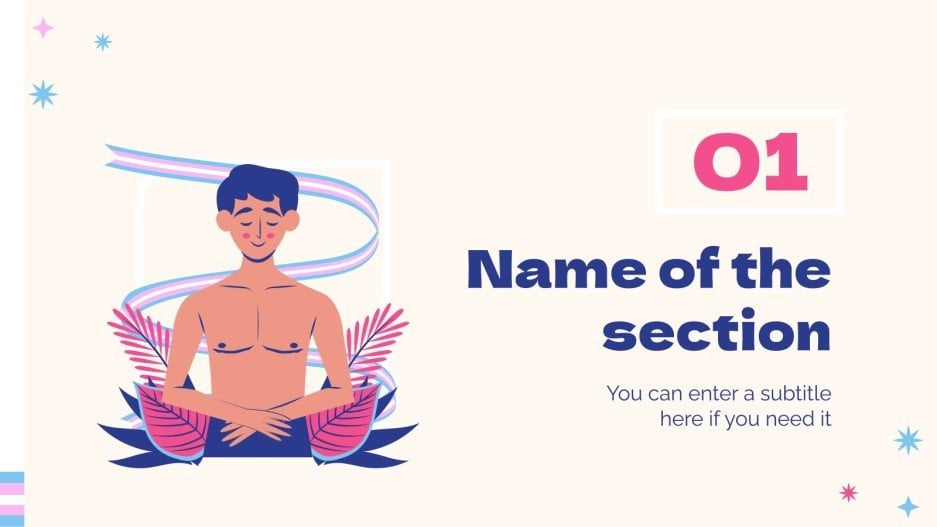How To Be A Better Ally This International Transgender Day Of Visibility

Table of Contents
Educate Yourself on Transgender Issues
To be an effective transgender ally, education is paramount. Understanding the complexities of gender identity and the lived experiences of transgender individuals is the foundation of meaningful allyship.
Understand the Basics of Gender Identity
It's essential to grasp the difference between sex assigned at birth, gender identity, and gender expression. These are distinct concepts, and conflating them leads to misunderstanding and misgendering.
- Sex assigned at birth: This refers to the sex assigned to an individual at birth based on their biological sex characteristics.
- Gender identity: This is an individual's internal sense of being a man, a woman, both, neither, or somewhere else along the gender spectrum.
- Gender expression: This is how someone outwardly presents their gender through clothing, behavior, and other means.
Let's clarify some common terms:
- Cisgender: Describes individuals whose gender identity aligns with the sex assigned at birth.
- Transgender: Describes individuals whose gender identity differs from the sex assigned at birth.
- Non-binary: An umbrella term encompassing individuals who don't identify exclusively as male or female.
- Gender fluid: Describes individuals whose gender identity changes over time.
For accurate and comprehensive information, refer to reputable organizations such as:
- GLAAD (Gay & Lesbian Alliance Against Defamation)
- The Trevor Project
- Human Rights Campaign
Learn About Transgender Experiences
Transgender individuals face unique challenges across various aspects of life. Understanding these challenges is key to becoming a supportive ally.
- Healthcare: Access to affirming and competent healthcare is often a significant barrier for transgender individuals. This includes access to hormone replacement therapy (HRT), gender-affirming surgeries, and mental healthcare.
- Employment: Transgender individuals often experience discrimination in the workplace, leading to unemployment and economic instability.
- Social Acceptance: Transphobia and societal prejudice create hostile environments, impacting mental health and well-being.
It's crucial to listen to and amplify transgender voices. Learn about their experiences through personal stories, documentaries, and reputable publications.
Recognize Microaggressions and Their Impact
Microaggressions, seemingly small acts of discrimination, can significantly impact transgender individuals. These subtle, often unintentional, actions contribute to a hostile environment.
- Examples of microaggressions: Misgendering, deadnaming (using a former name), making inappropriate comments about someone's appearance, questioning their identity.
- Addressing microaggressions: When you witness a microaggression, politely and respectfully intervene. Educate the person who made the comment and explain the impact of their words or actions.
Even seemingly small actions can create a climate of fear and exclusion. By being aware of and addressing microaggressions, you contribute to a safer and more inclusive environment.
Advocate for Transgender Rights and Equality
Allyship goes beyond personal interactions. Active advocacy for transgender rights is essential to create lasting change.
Support Transgender-Inclusive Policies
Champion policies that ensure equal rights and opportunities for transgender individuals in your workplace, school, and community.
- Non-discrimination laws: Support and advocate for legislation that prohibits discrimination based on gender identity.
- Inclusive policies: Advocate for policies such as gender-neutral restrooms, inclusive dress codes, and gender-affirming healthcare coverage.
Speak Out Against Transphobia
Challenge transphobic statements and behaviors whenever you encounter them. This is crucial in dismantling harmful stereotypes and creating a culture of respect.
- Strategies for challenging transphobia: Use respectful language, educate the person expressing transphobic views, and offer resources to learn more about transgender issues.
- The importance of allyship: Your voice matters. Speaking out against transphobia, even in seemingly small ways, can make a significant difference.
Support Transgender Organizations and Initiatives
Contribute your time and resources to organizations working to advance transgender rights.
- Reputable organizations: The Human Rights Campaign (HRC), GLAAD, The Trevor Project, and many local LGBTQ+ organizations provide crucial support and advocacy.
- Financial and volunteer support: Donating to or volunteering with these organizations amplifies their impact and creates positive change.
Practice Respectful and Inclusive Language
Language plays a vital role in creating an inclusive environment. Using respectful and accurate language is crucial in demonstrating your allyship.
Use Correct Pronouns and Names
Always use a person's preferred name and pronouns. This simple act of respect validates their identity and shows you care.
- Asking for pronouns: It's appropriate to ask someone their pronouns if you're unsure. For example: "What pronouns do you use?"
- The harm of misgendering: Misgendering someone can be deeply hurtful and invalidating. It's important to correct yourself immediately and apologize if you make a mistake.
Avoid Gendered Assumptions
Refrain from making assumptions about someone's gender based on their appearance. Create an environment where everyone feels comfortable expressing their gender identity.
- Inclusive environment: Use gender-neutral language whenever possible. For instance, use "folks" instead of "guys," and avoid assuming someone's marital status or family situation.
Challenge Gender Stereotypes
Actively challenge gender stereotypes in your everyday conversations. These ingrained beliefs perpetuate harmful and exclusionary norms.
- Harmful effects of gender stereotypes: Gender stereotypes limit individuals and reinforce societal biases.
- Challenging stereotypes: When you hear a gender stereotype, politely point out its inaccuracy and harmful nature.
Conclusion
This International Transgender Day of Visibility offers a crucial opportunity to reflect on how we can be better transgender allies. By educating ourselves, advocating for change, and practicing inclusive language, we can create a more welcoming and supportive environment for transgender individuals. Becoming a stronger transgender ally requires ongoing commitment and learning. Continue to educate yourself, engage in respectful dialogue, and advocate for transgender rights. Let's work together to make this a day of true visibility and support for the transgender community. Learn more about becoming a better transgender ally and find resources to help you on your journey.

Featured Posts
-
 Tragedy Strikes Superyacht Salvage Diver Perishes In Initial Recovery Efforts
May 10, 2025
Tragedy Strikes Superyacht Salvage Diver Perishes In Initial Recovery Efforts
May 10, 2025 -
 Invest Smart A Map Of The Countrys Top Business Locations
May 10, 2025
Invest Smart A Map Of The Countrys Top Business Locations
May 10, 2025 -
 Analysis Trump Tariffs And The 174 Billion Hit To Top Billionaires Wealth
May 10, 2025
Analysis Trump Tariffs And The 174 Billion Hit To Top Billionaires Wealth
May 10, 2025 -
 Wynne And Joanna All At Sea A Comprehensive Guide
May 10, 2025
Wynne And Joanna All At Sea A Comprehensive Guide
May 10, 2025 -
 Trump Administration Considers Halting Migrant Detainment Appeals
May 10, 2025
Trump Administration Considers Halting Migrant Detainment Appeals
May 10, 2025
